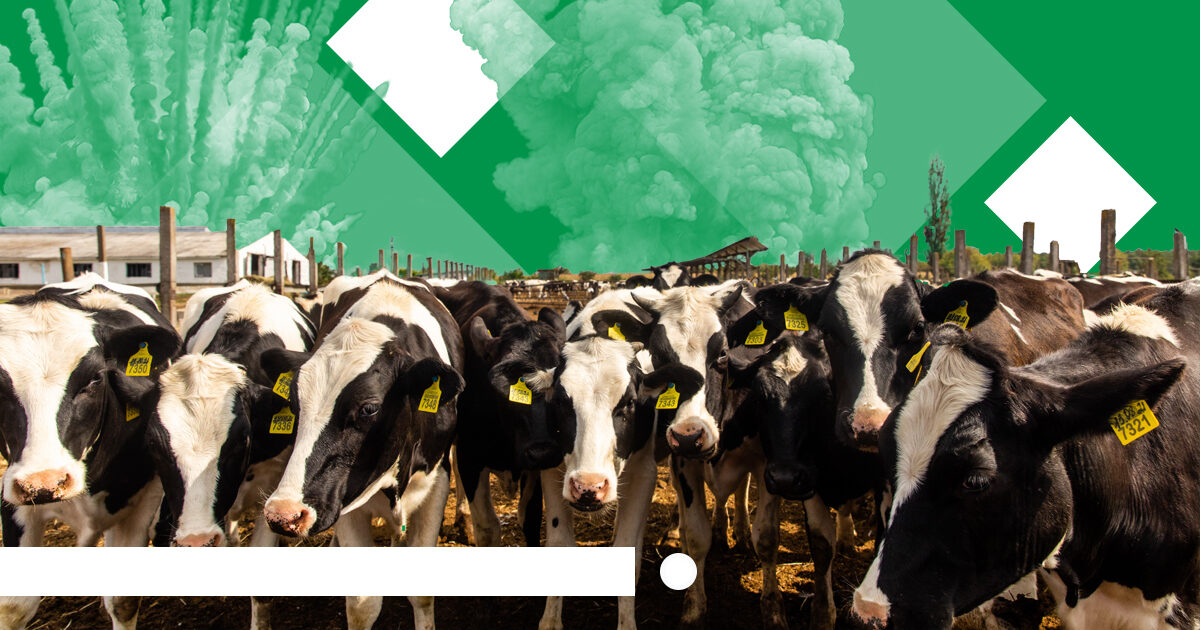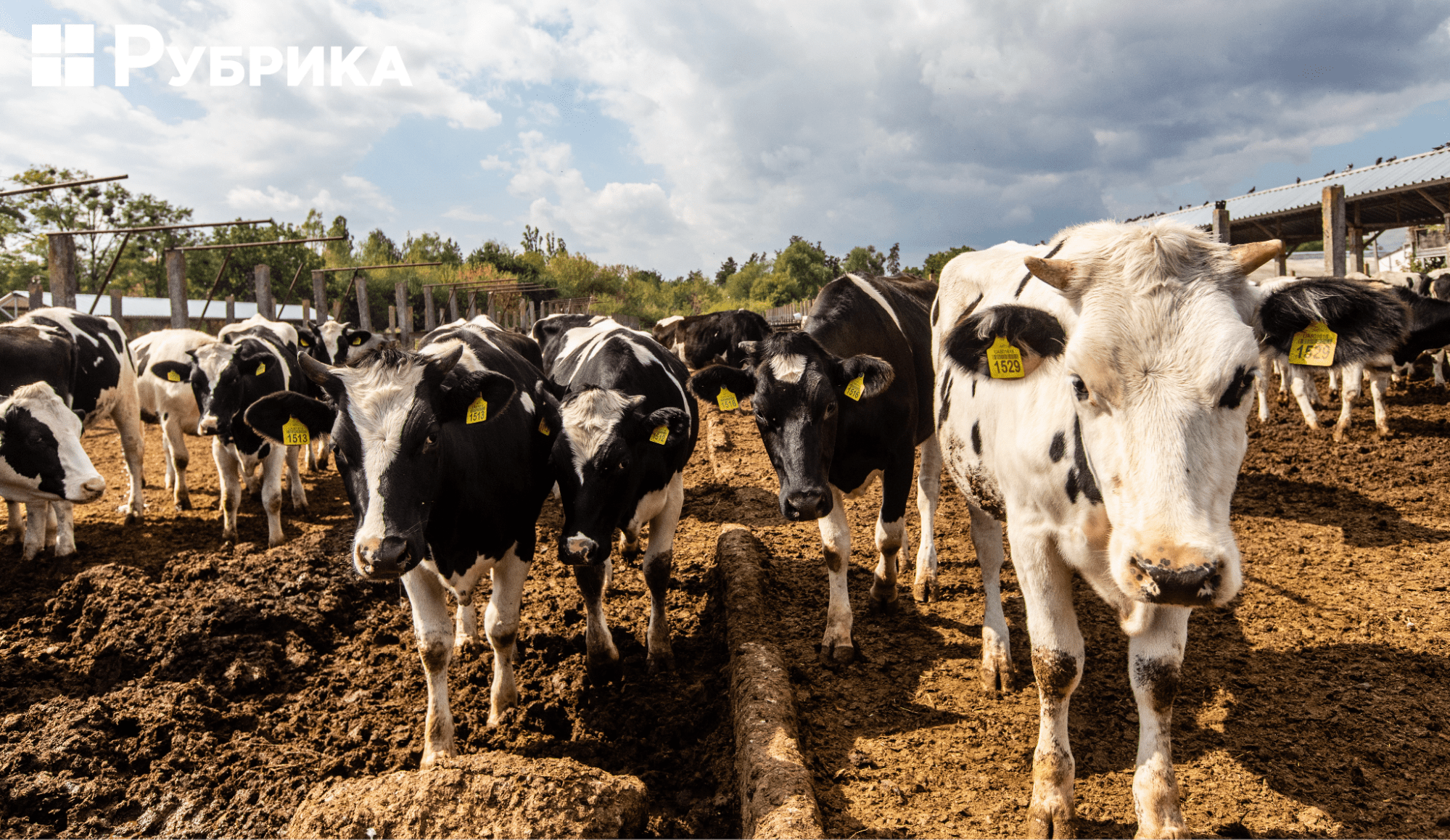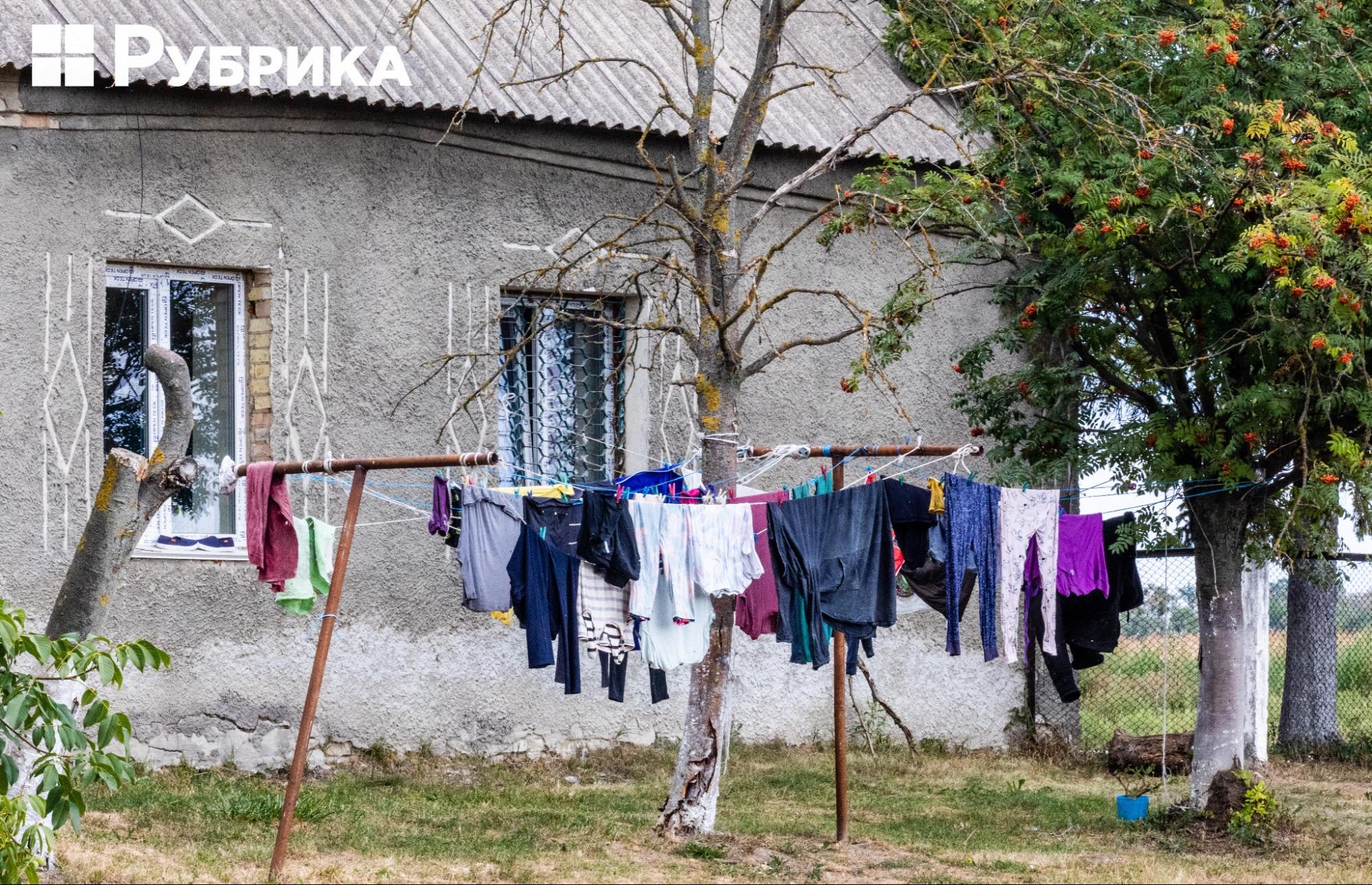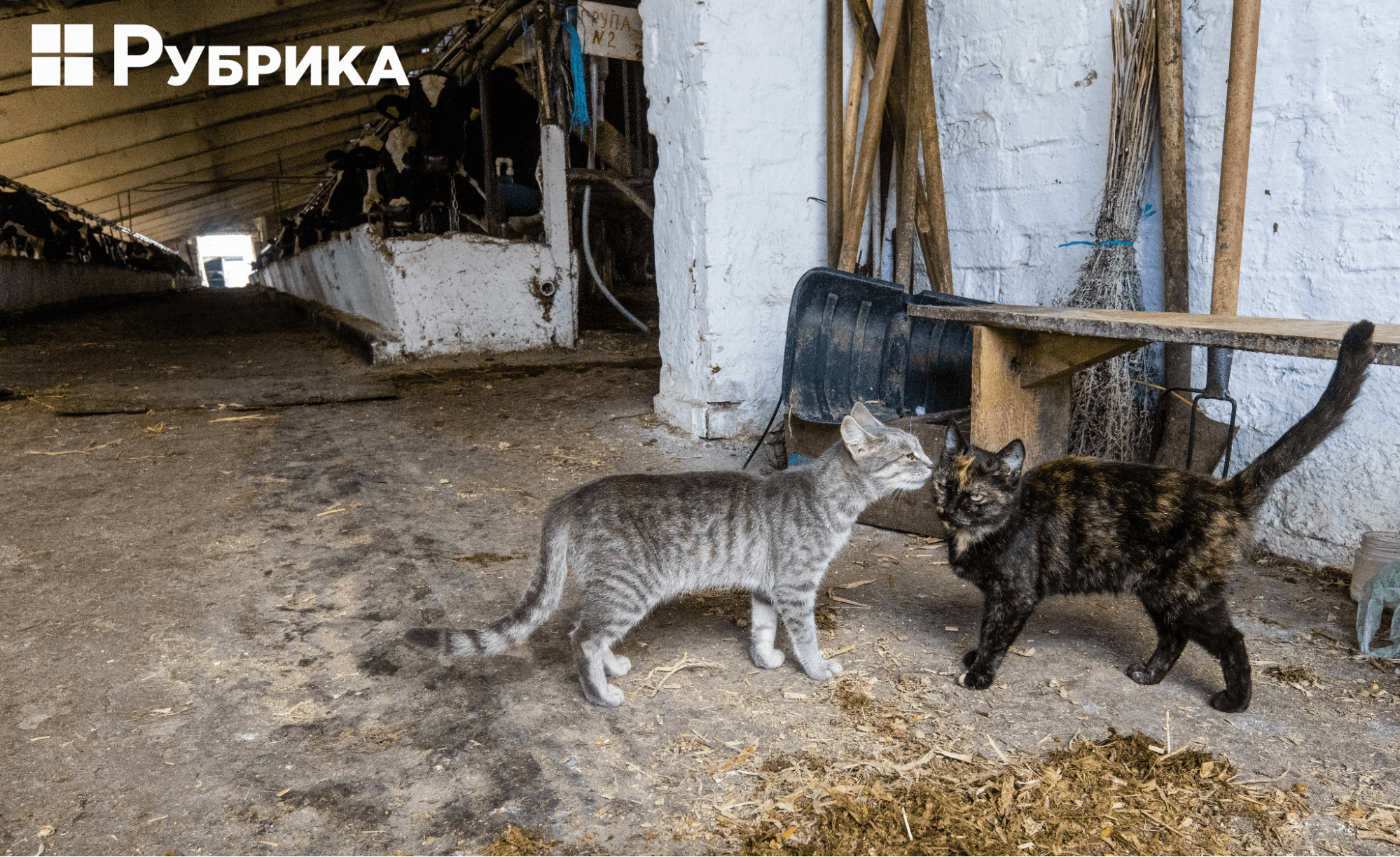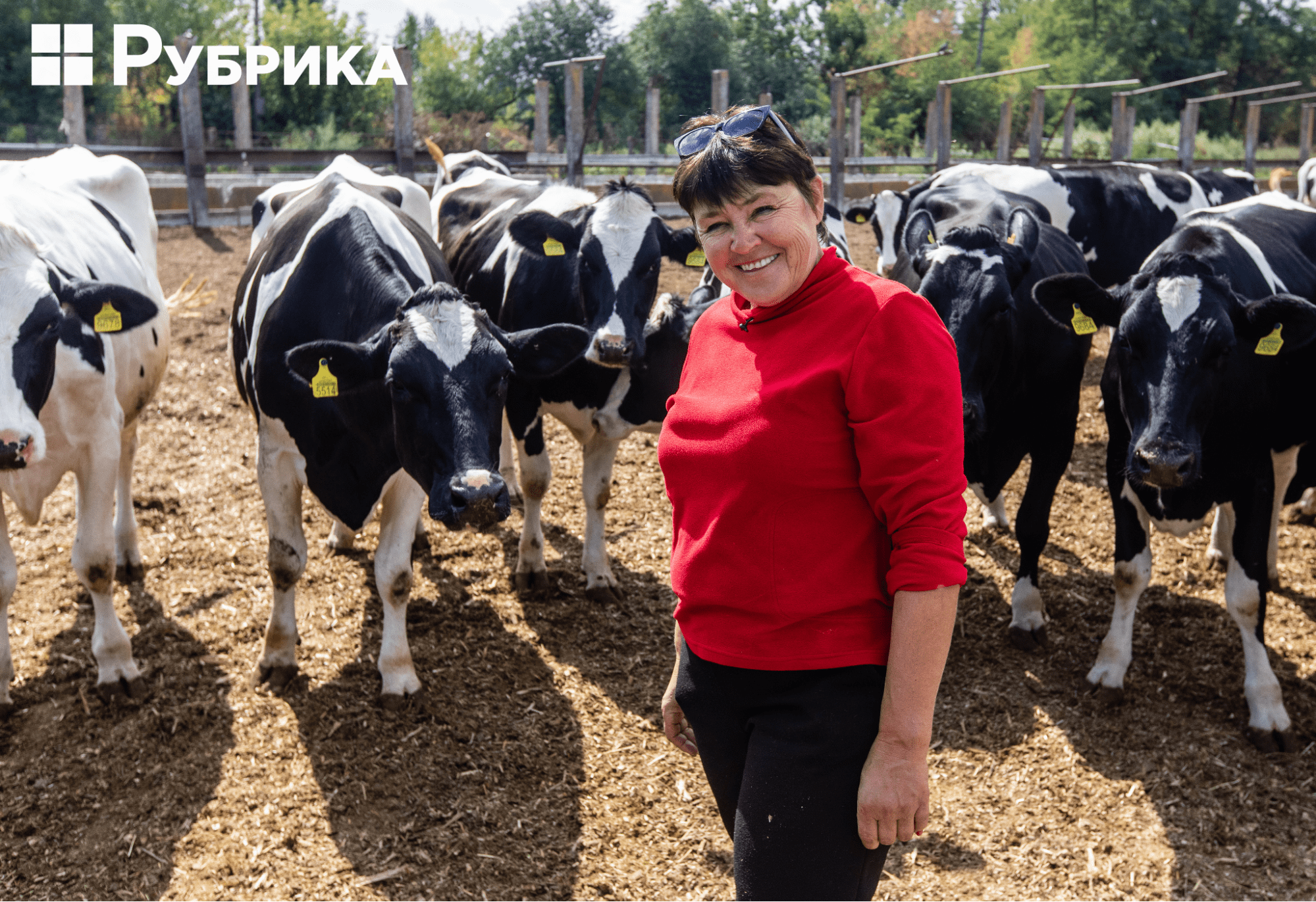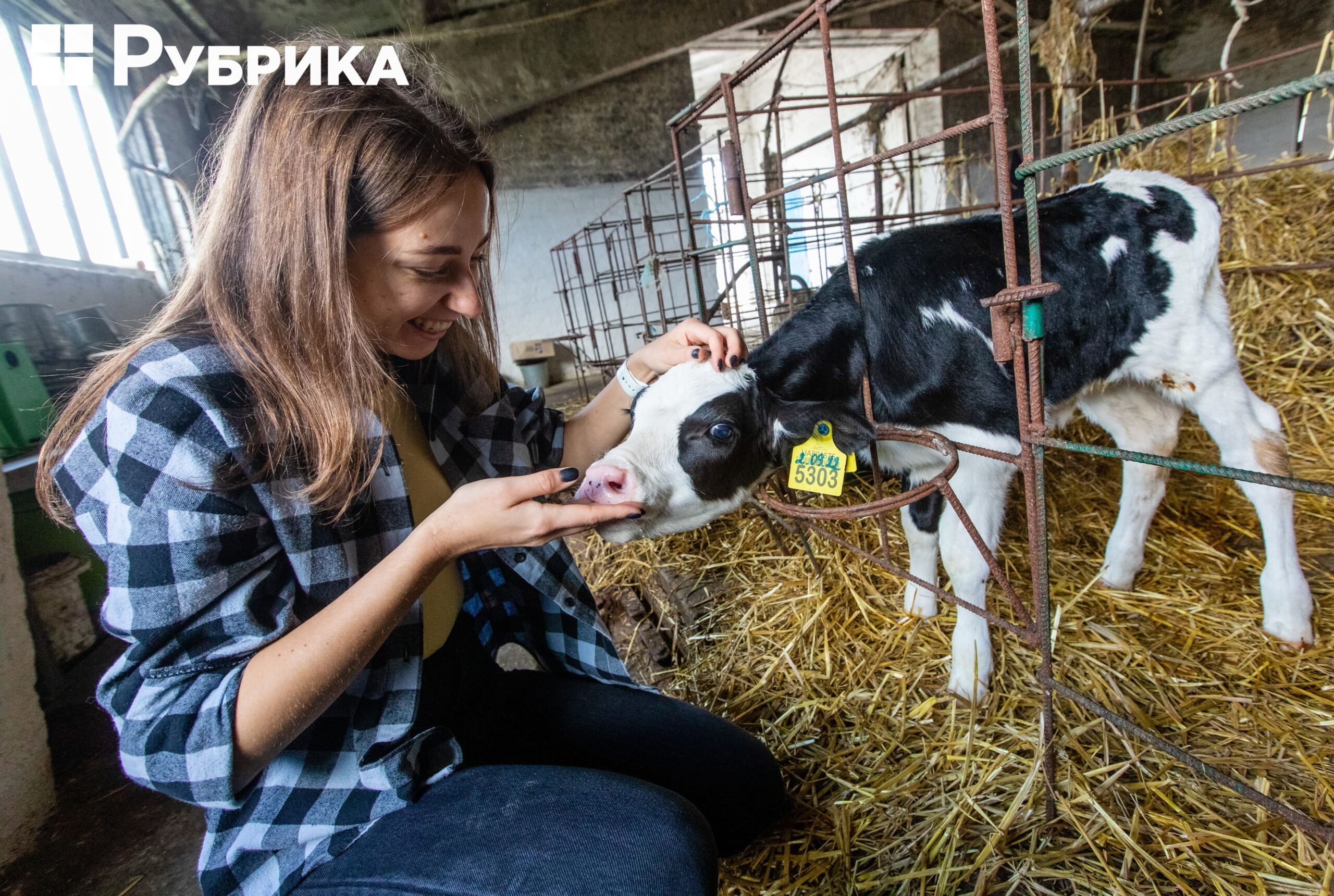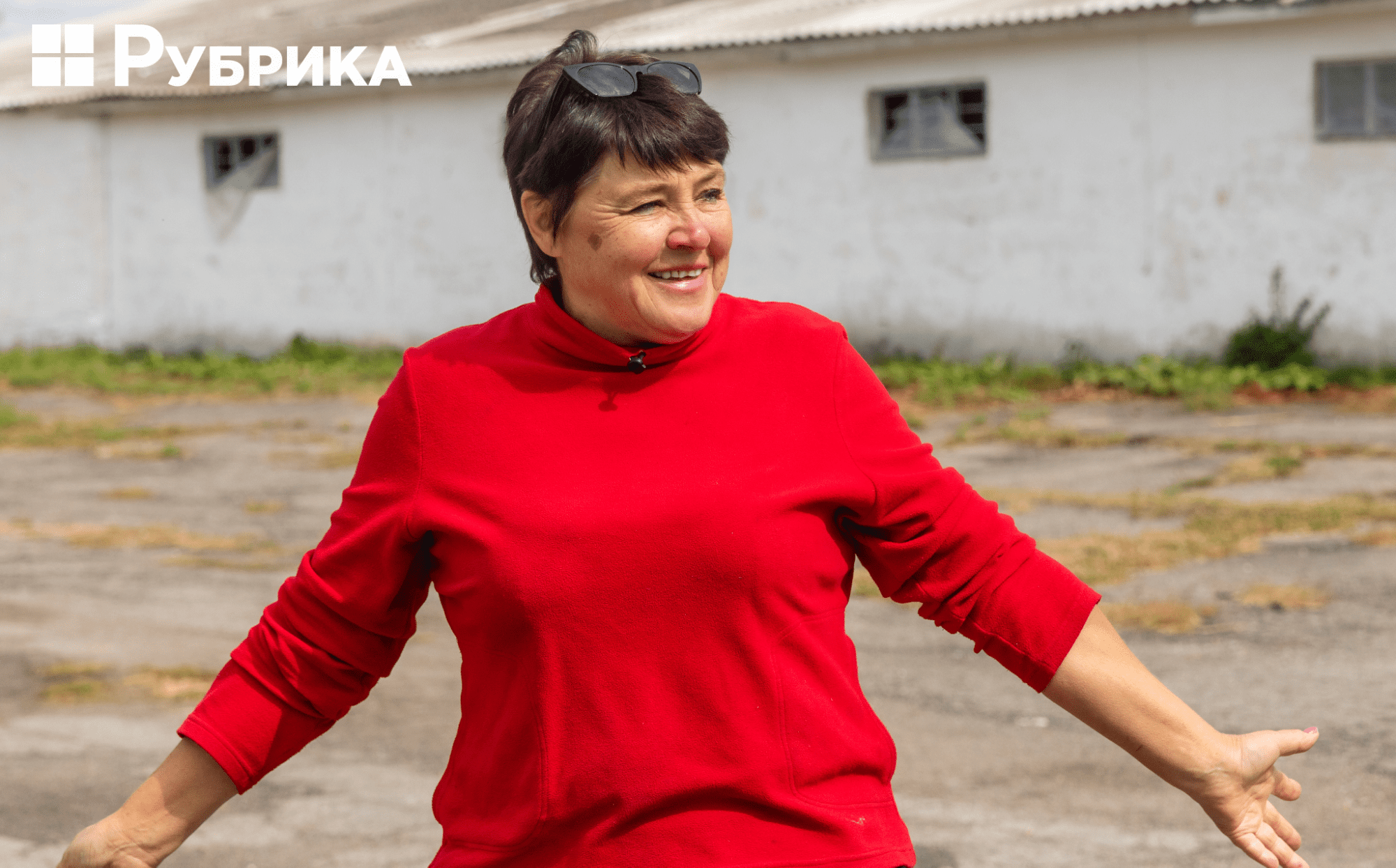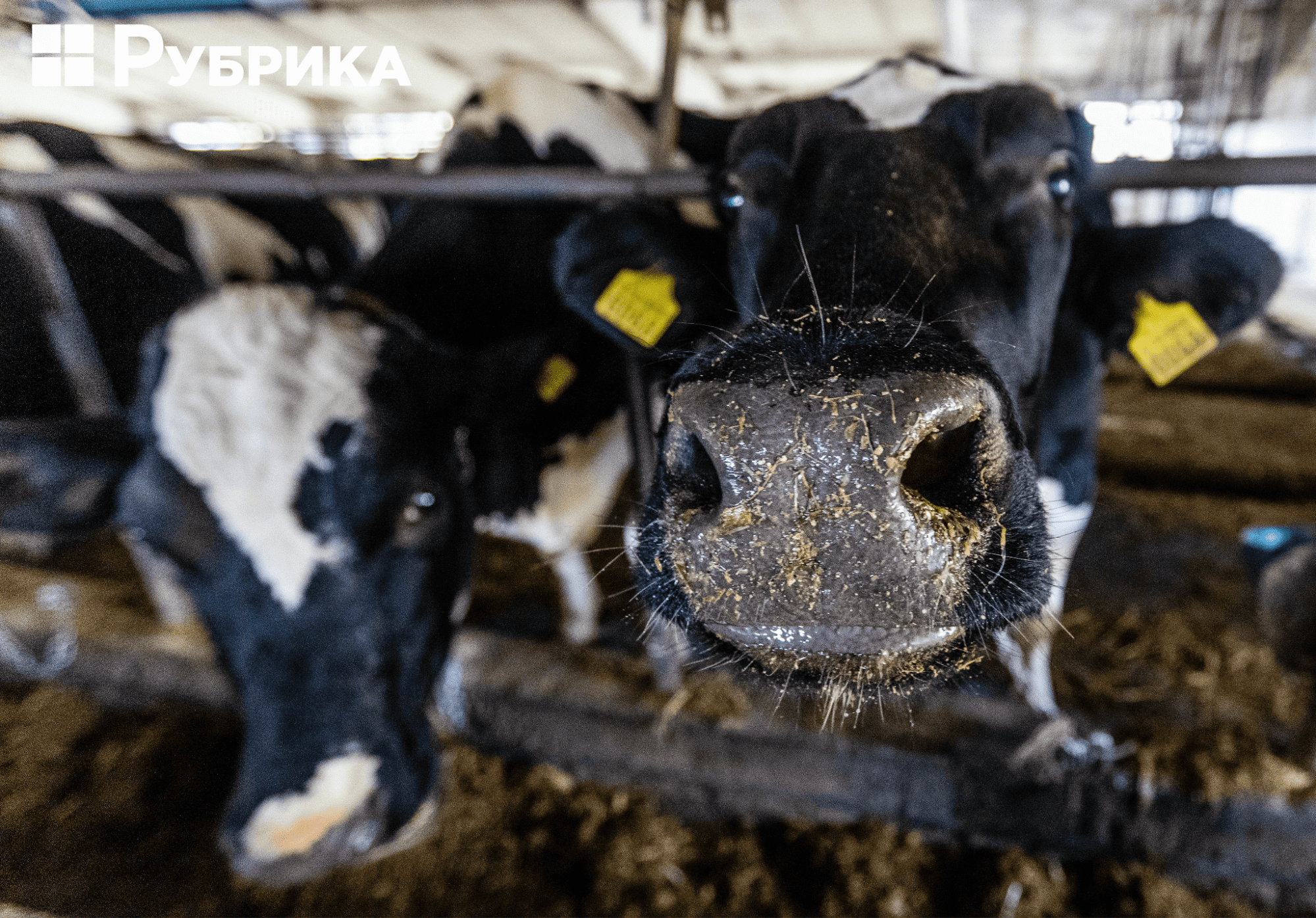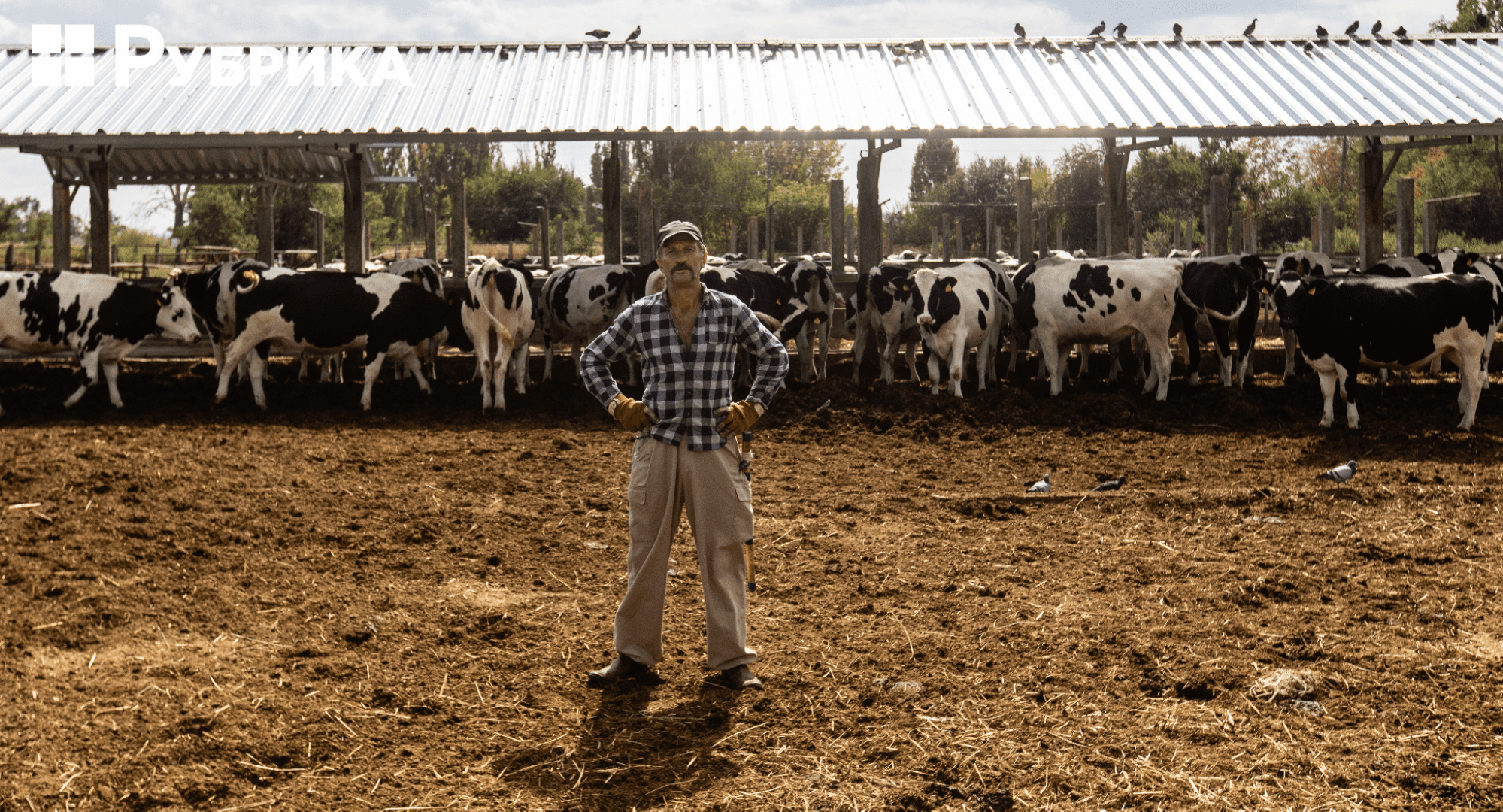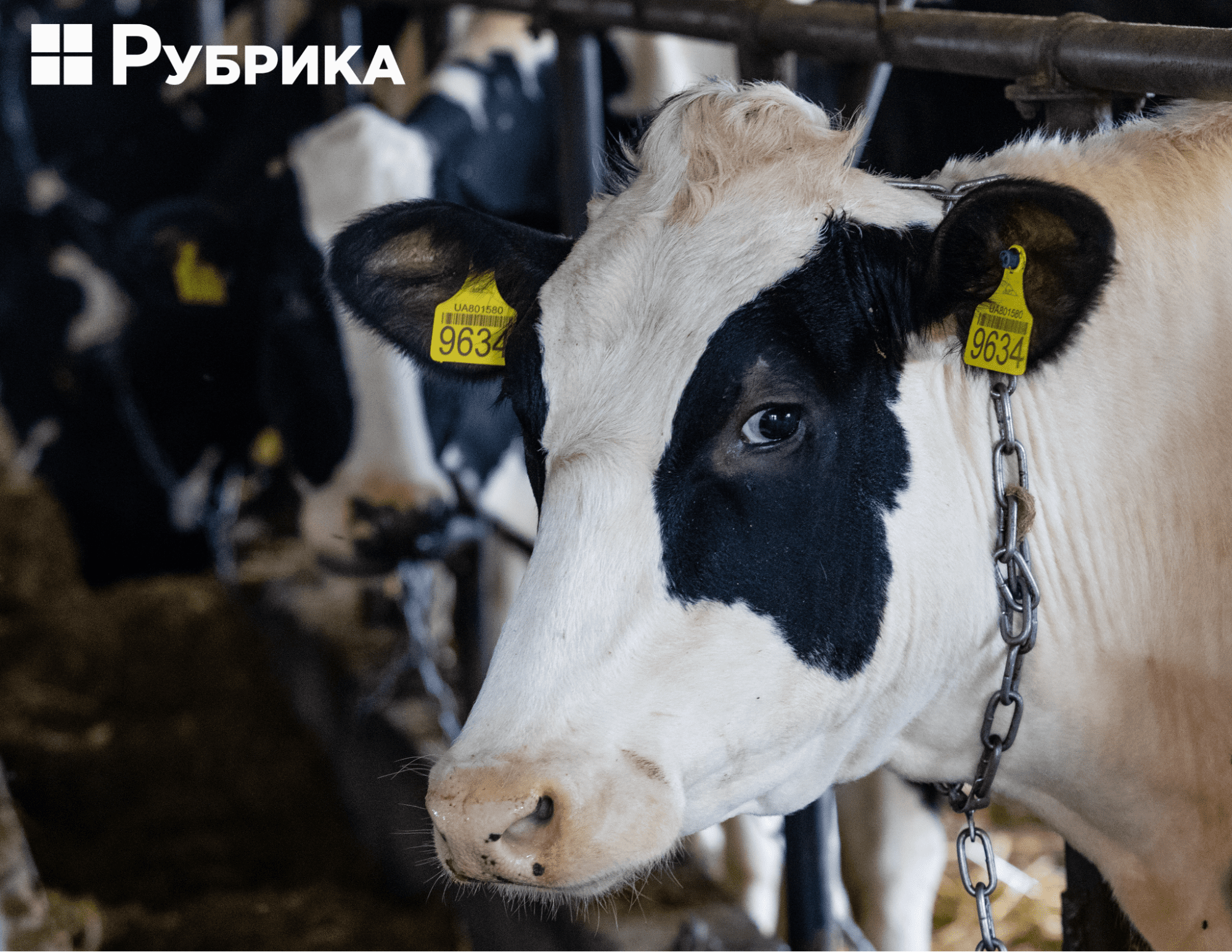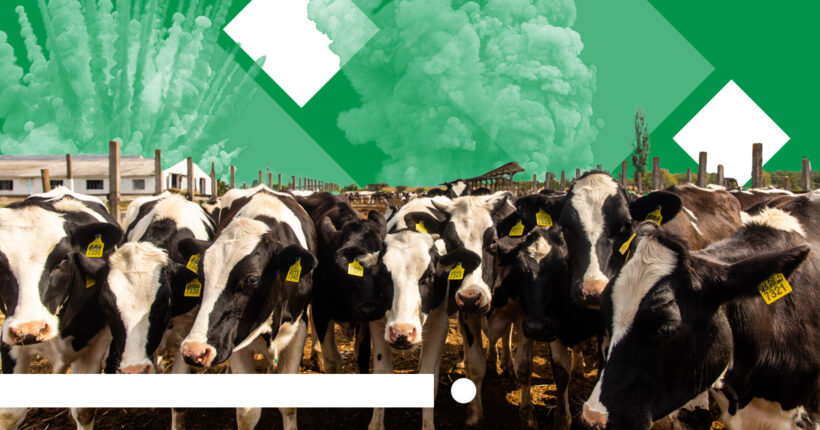
What is the problem?
Rubryka recently visited a cow farm in Muzychy, Kyiv region. The vast enterprise keeps a herd of 650 animals and has fields where they collect hay for the animals at its disposal. The farm is self-sufficient, and the production is waste-free and environmentally friendly. The farm's waste is turned into humus, which the villagers can purchase, and the milk from here is sent to the factories.
In February and March of this year, the farm survived the war: russian and Ukrainian military units were located 3-5 kilometers from both sides of the cowsheds, and shells whistled over the buildings.
Nearby you can still find explosion craters. The farm was isolated from the outside world, and the workers could neither get to work nor leave it.
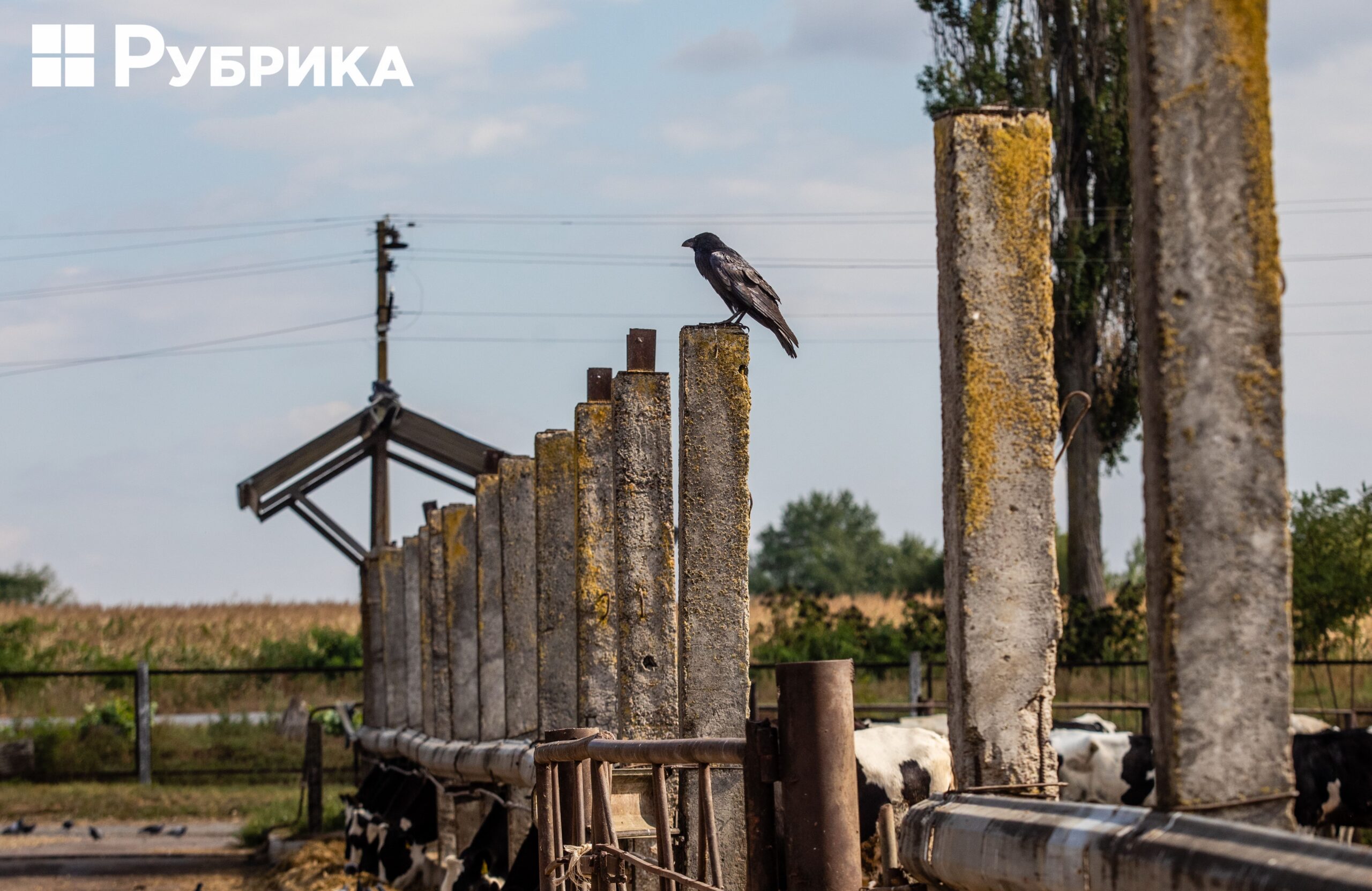
But the farm managed to survive, save the herd and milk, and help the villages, the army, and the waste disposal plant. So we tell the story of how it was.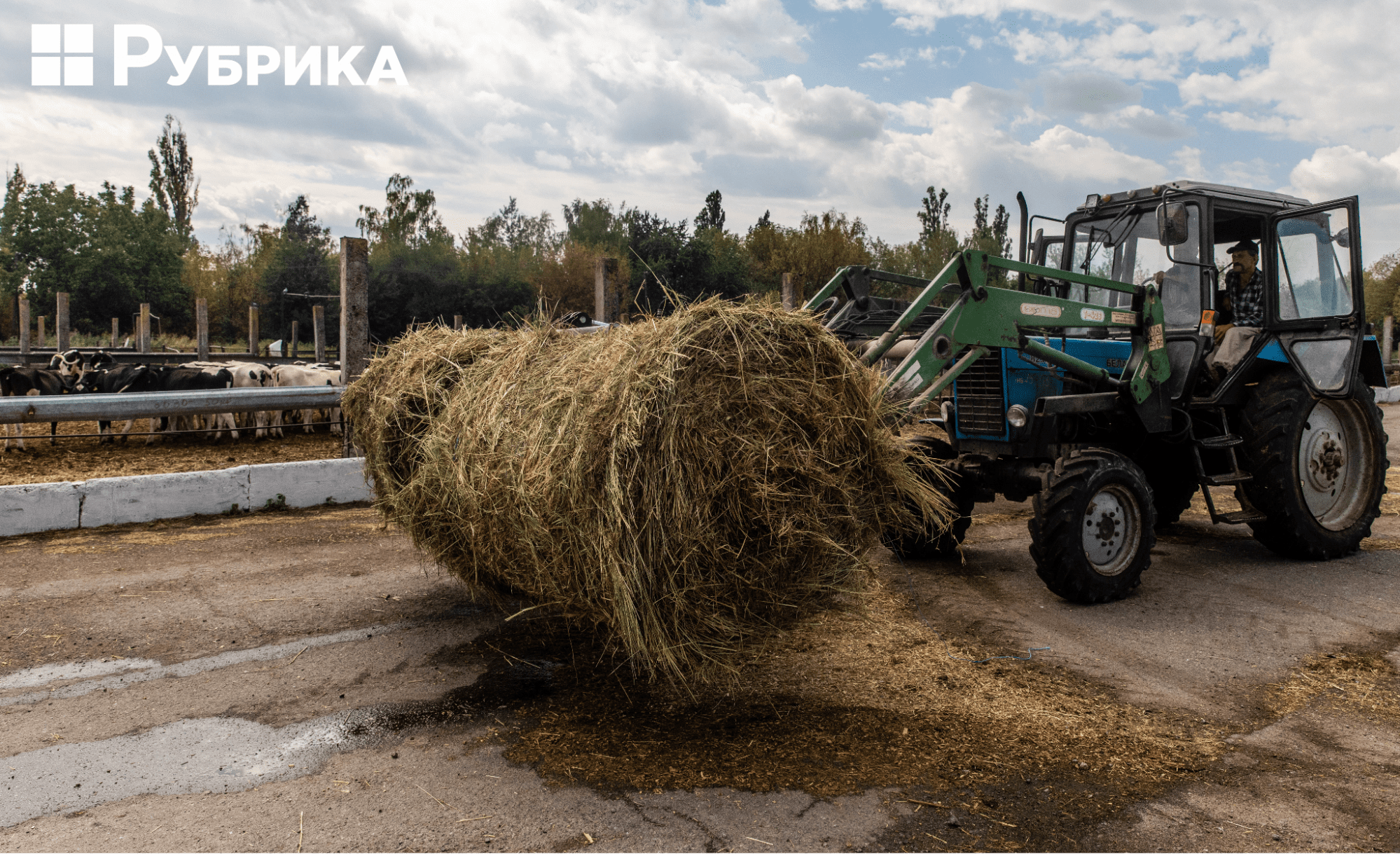
What is the solution?
For a while, the farm became a refuge
In the first days of the full-scale war, many people began to leave Kyiv; at that time, it wasn't clear where it was safer, and the majority wanted to escape the capital. The farm managers organized a transfer for the enterprise workers living in the city. Some employees moved to the farm together with their families.
The farm arranged housing in the office. Some workers still sometimes stay here for several days.
What also helped was that the company stocked up on gasoline before the full-scale invasion began, so they shared gasoline with those who delivered food to the villagers and soldiers of the nearby Ukrainian Armed Forces.
"People united then, and I liked it so much! I'm proud to live next to such people who love their village. Loving your village means loving the Motherland," says farm worker Mahmud Rahymovych.
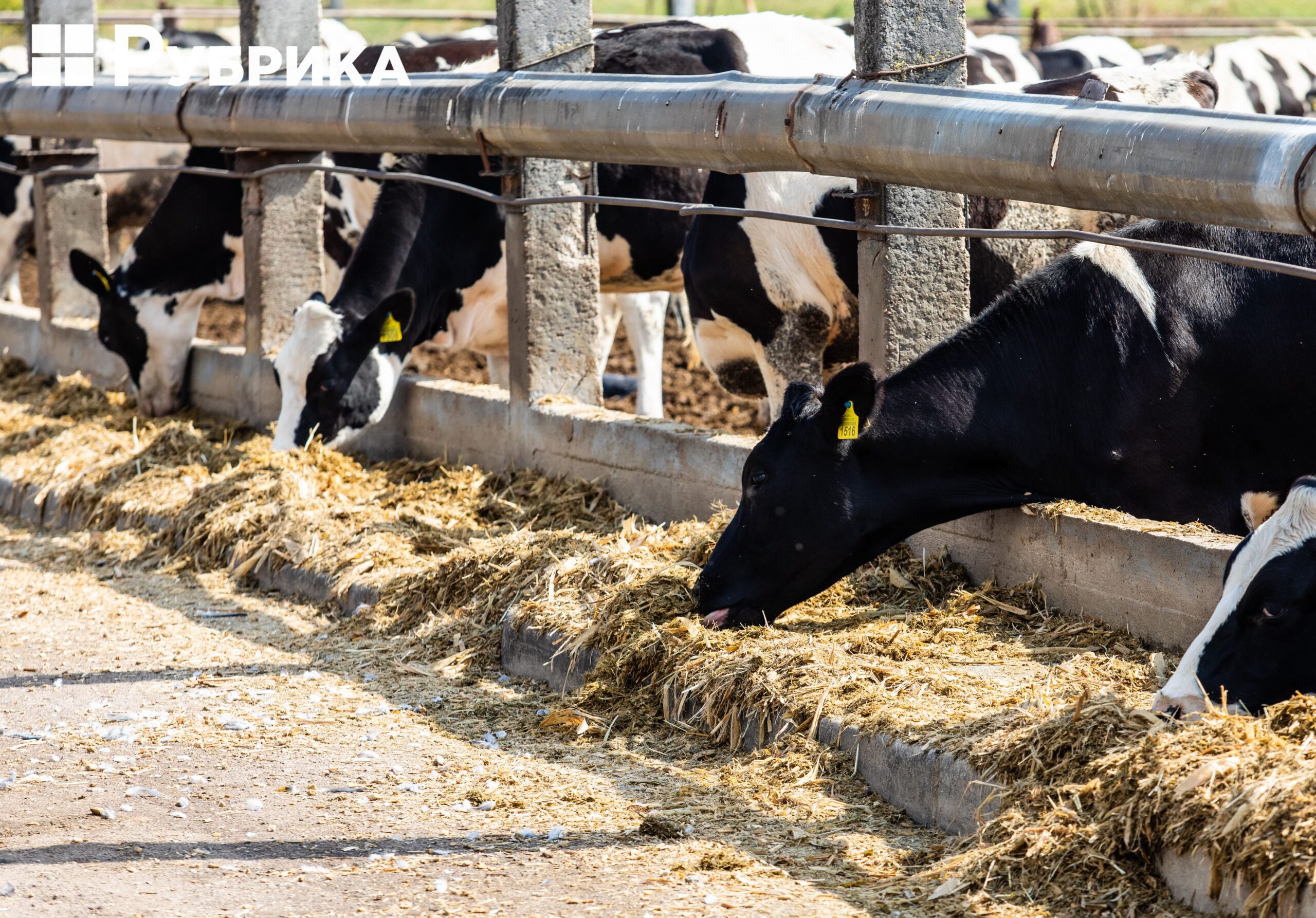
"The animals have been jumping"
Working 24/7 under fire
When the russians reached the nearby village of Yasnohorodka, the farm became dangerous. But it was impossible to leave the animals, just as it was impossible to stop milking the cows because, in this case, they would stop giving milk, and then the farm would not be able to continue functioning. At that time, it was challenging because only five milkmaids stayed out of a staff of 35 people: one left, and the others didn't have the opportunity to get to the farm because they lived in Kyiv and worked in shifts.
"Everyone left because of the fear of war. We understood that it was necessary to save and milk the herd—not just to milk, but also to sell the milk because sooner or later, we would have to pay salaries," the farm staff recalls.
They had to work overtime: from five in the morning until six in the evening. Olha, a zoologist and farm employee, says that she had to be a locksmith, a technician, and a milkmaid.
The explosions blew out the windows in the stall where the animals lived. It was winter, and the problem had to be solved immediately, so the workers themselves covered the windows with film. They did it between milkings.
"During the shelling, the animals even shook and jumped! The roar was terrifying, deafening. We tried to ignore the shooting and explosions nearby. Even though people were horrified, there was both laughter and crying. But we had to cheer people up, so we sang Ukrainian songs," Olha recalls.
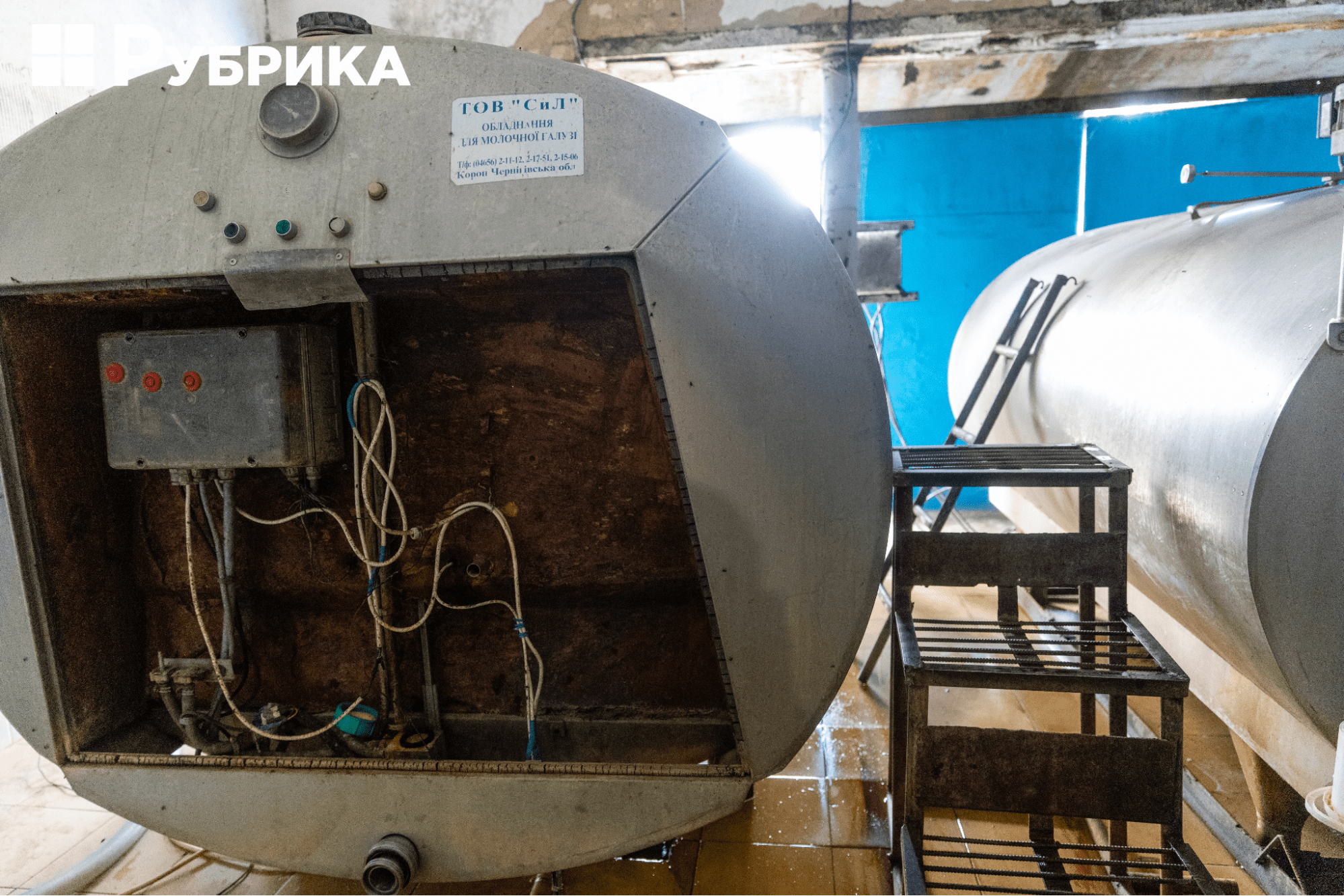
Cows are not milked manually but with the help of special machines. Thus, the finished product doesn't come into contact with a person at any collection stages, but it was impossible to "connect" the cow to the device during the shelling.
"If the orcs come, what shall we do with them?"
Olha's thoughts revolved around three tasks: "to milk, save, realize," and the woman adds, "if the orcs come, what shall we do with them?":
"Let's meet with bread and salt: let's milk, add white hellebore [poisonous plant, ed.], and let them, God forgive, drop dead," says the farmer, crossing the heart. "I didn't think about what would happen next."
There are always solutions
Almost immediately, the farm had a product storage issue. The farm's refrigerators can hold only 10 tons of milk and can only be stored for a few days. But in stressful conditions, they found a way to simultaneously store three times more—as much as 35 tons! Milk is usually stored in a special refrigerator, but in an emergency situation, they have to find new solutions.
"It was freezing cold, and we pulled all our containers. Even a milk truck is still there, "the woman points in the other direction. "There were also other containers into which we poured milk. It froze overnight, and in the morning, we broke that ice with our hands, fished it out, crushed it, transferred it to the refrigerator to mix with warm milk, and pumped it into other containers.
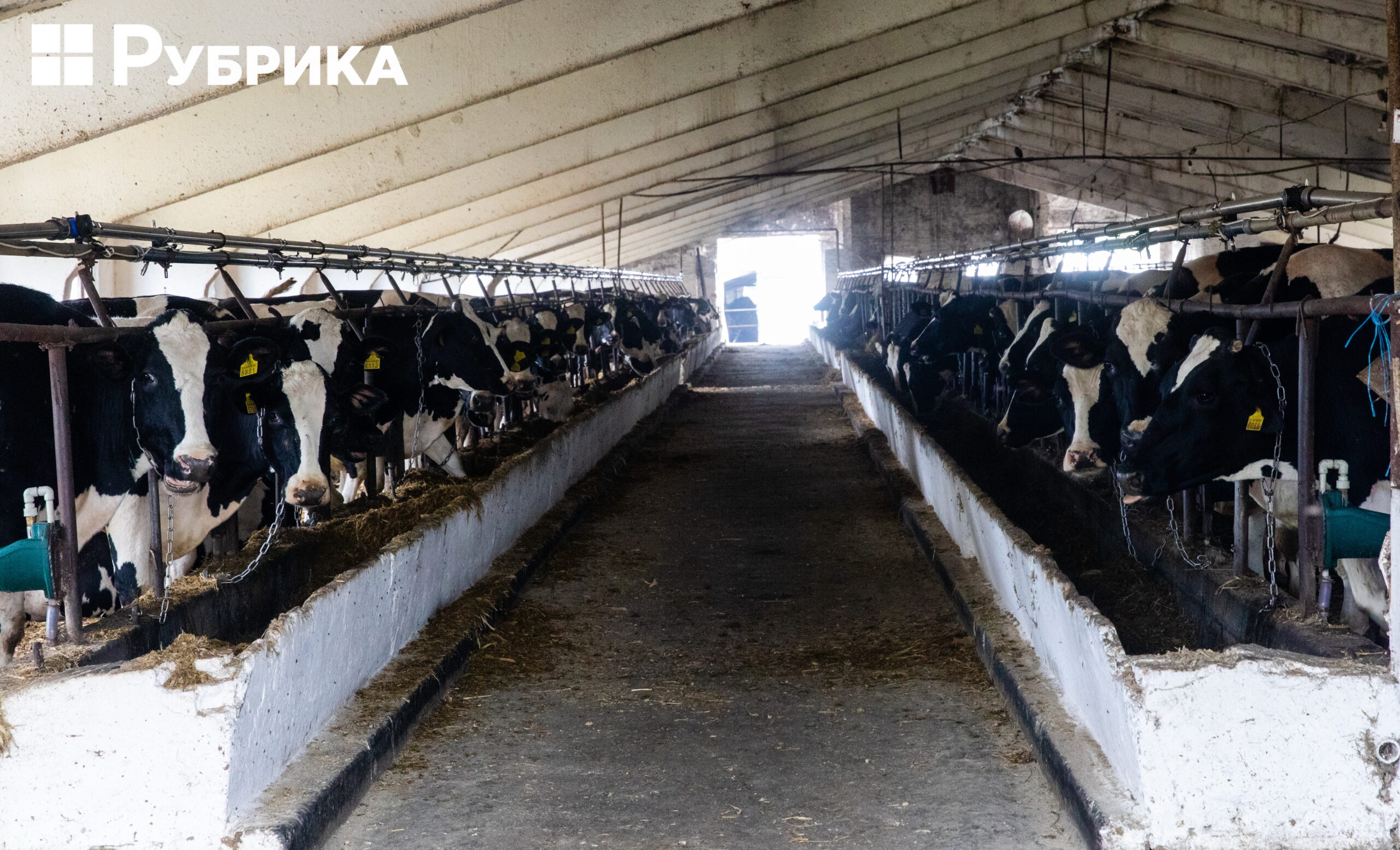
When there were no products left in the stores, the farm helped the villagers
But how to sell milk to factories that cannot be reached? Earlier, the farm sold milk to distant enterprises, but due to the lack of gasoline and the fact that the russians were three kilometers from the farm, it was impossible to get there.
"I called the Cherkasy region and asked how they store milk. I was told it wasn't sold; the milk was poured into the sewer. Twenty tons per day, even from large farms! We did not do that, and in agreement with our directors, we decided to distribute milk to people. A couple of days after the start of hostilities, there was nothing left in the stores, so we distributed milk to the territorial defense and residents.
They gave away milk for free or "for a donation." The villagers still remember it. With the money they collected, the farm workers bought grain when they could go to the nearest settlement, where the store still worked.
"We were pouring milk into a barrel, and shells were whistling above us. But we continued to work squatting like this because we knew people were waiting," Olha recalls.
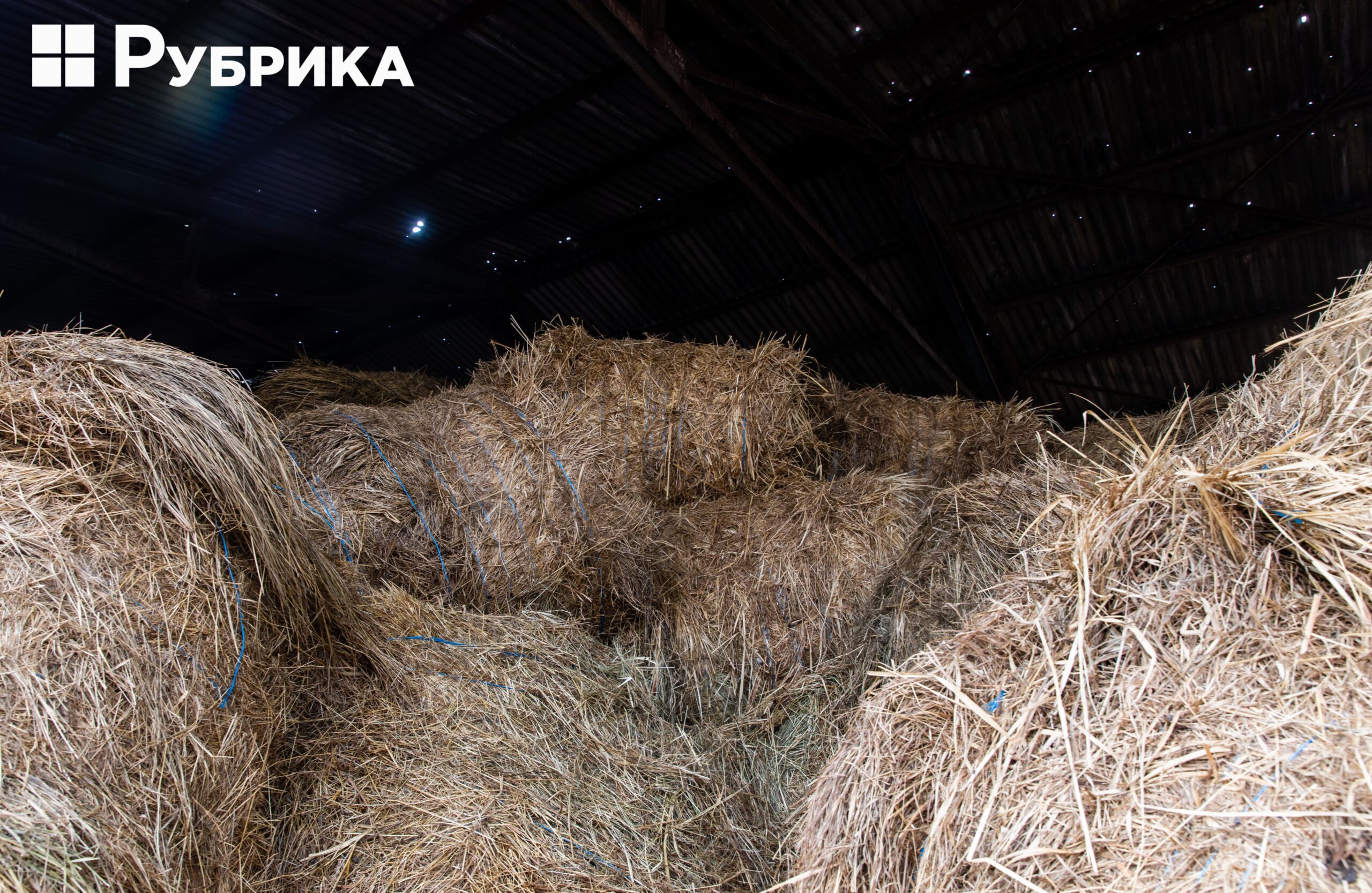
What now?
Since then, the farm's milk amount has decreased by 10% because the staff was smaller, and they had to switch from three times to two times milking. The cows still have not "recovered" from the transition to such a regime, so now, even six months later, they give less milk than before the start of the full-scale war. But none of the animals died; the farmers managed to save the entire herd, which is more than half a thousand animals.
The farm made conclusions: fuel reserves, hay, generator, and the ability of the workers to perform different types of work helped to survive the difficult times, but in the end, each of the farm workers repeated the same thing to us:
"The most important reason why we managed to survive is our people. Write about it because people are the main thing."
Photo by Mykola Tymchenko, Rubryka
Newsletter
Digest of the most interesting news: just about the main thing



